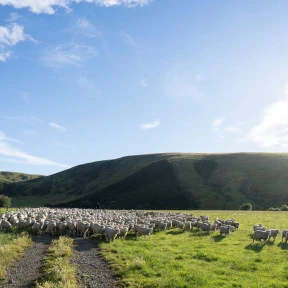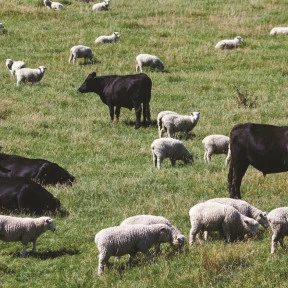Introduction
Livestock farming is a ‘lightning rod’ globally for perceived negative impacts on climate change, land degradation, biodiversity loss, deteriorating water quality, and animal welfare and human health issues.
However, there is significant variety in types of livestock systems - from highly intensive housed systems to extensive low intensity systems - and the impacts of each varies. At the same time, ‘grass-fed’ ruminant livestock products are marketed for their superior nutritional and taste properties, their improved animal welfare including enabling natural animal behaviour, and their perceived ‘naturalness’ in general.
While the narrative about ‘grass-fed’ (most appropriately termed ‘pasture-fed’ to account for the presence of important non-grass species, including legumes and herbs) is being promulgated, the substance behind it is less clear. Therefore, it's important that the scientific evidence behind this narrative is scrutinised, with the real benefits or disadvantages defined so that any claims are scientifically robust.

